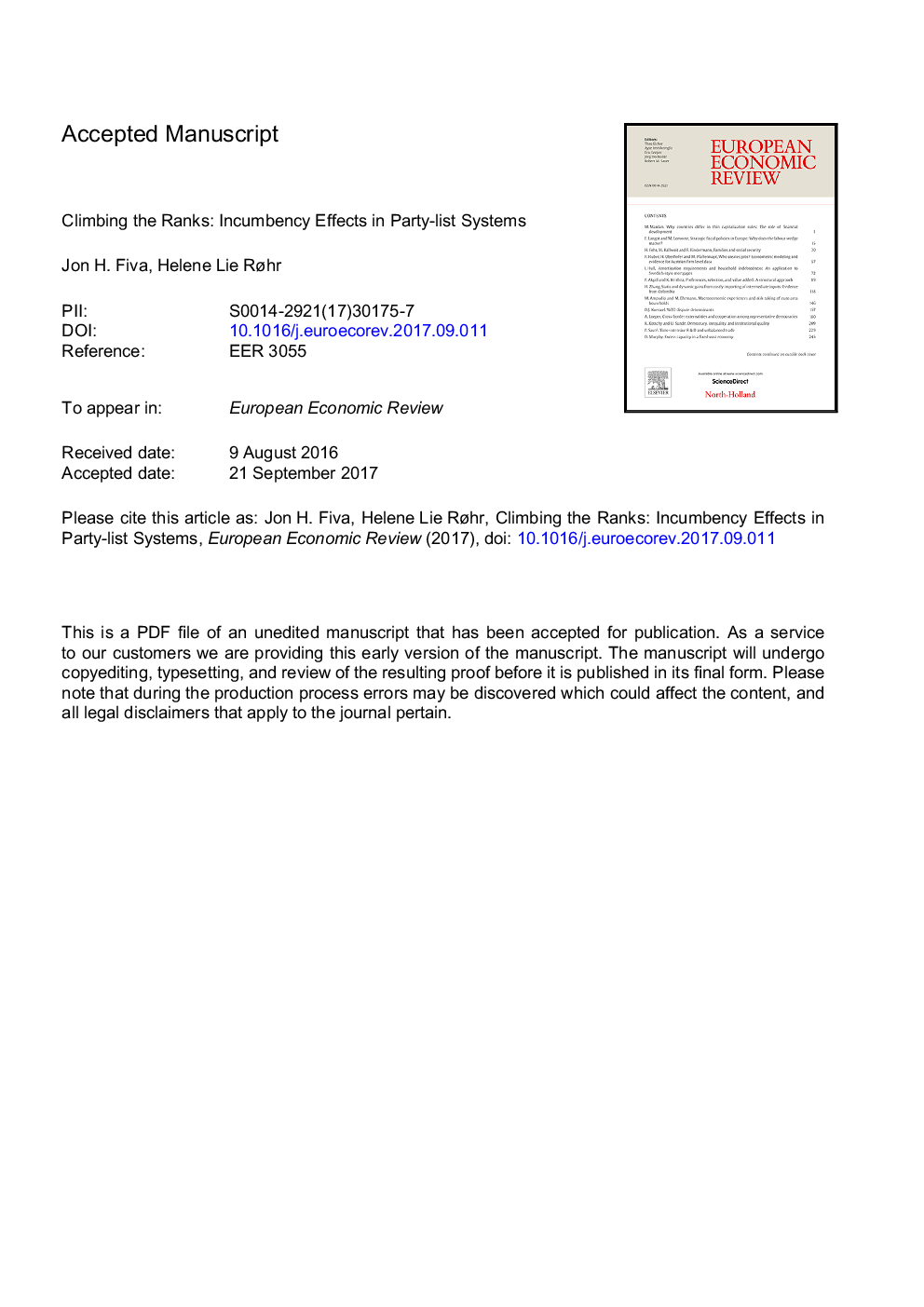| Article ID | Journal | Published Year | Pages | File Type |
|---|---|---|---|---|
| 7351605 | European Economic Review | 2018 | 32 Pages |
Abstract
Incumbents tend to have a solid electoral advantage in candidate-centered electoral settings. Do similar incumbency effects exist in more party-centered environments? We estimate incumbency effects in an open-list proportional representation system, exploiting that seats are first allocated across parties, and then to candidates within party lists. Using data from Norwegian local elections 2003-2015, we document that a candidate that barely wins a seat in the local council has about a 9 percentage points (43%) higher probability of being elected in the next election compared to a candidate that just misses out on a seat on the same party list. We find no evidence that voters contribute to this personal incumbency advantage. Rather, it seems as if party elites are instrumental in securing the electoral success of their party affiliates. We show that incumbents and non-incumbents run again in the subsequent election at about equal rates, but that incumbents tend to advance in the party hierarchy and obtain safer ballot positions in future elections, which is what ultimately leads to electoral success.
Related Topics
Social Sciences and Humanities
Economics, Econometrics and Finance
Economics and Econometrics
Authors
Jon H. Fiva, Helene Lie Røhr,
